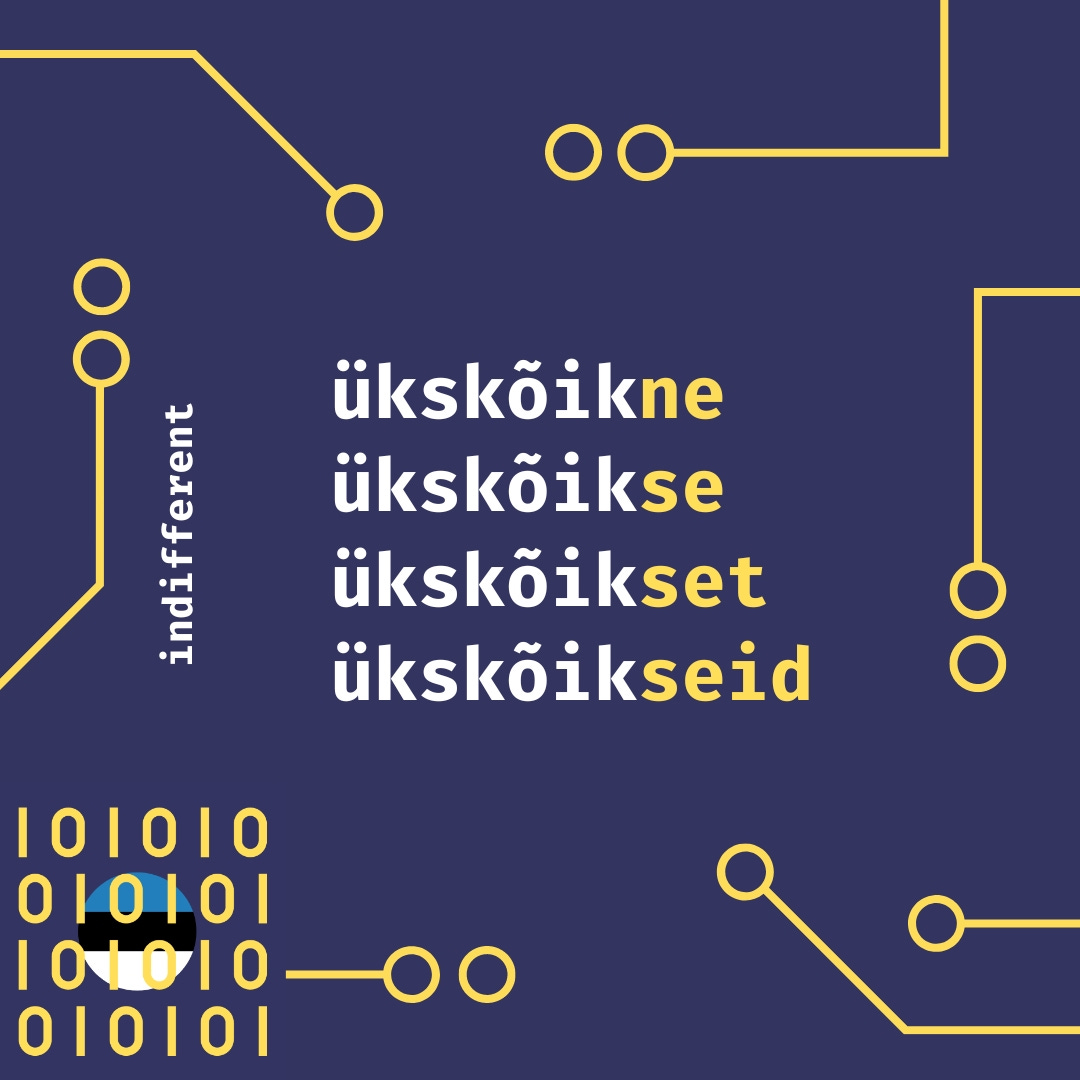Vocab: ükskõikne
indifferent
indifferent; nonchalant; someone who shows little or no interest or concern about something; non-responsive
Building blocks
üks- – "one" or "a single"
-kõik- – "all" or "everything"
-ne – an adjective forming ending
"Ükskõik" as a phrase means "doesn't matter" or "whatever". It reflects an attitude of indifference toward a choice or outcome.
So, "ükskõikne" literally suggests "being in a state where something is treated with indifference."
How to use it:
Here are a few ways the word “ükskõikne” can be used ⬇️
Lack of interest in a topic or situation:
Ta oli ettepanekute suhtes ükskõikne.
Translation: He was indifferent to the suggestions.
Emotionally unresponsive:
Ta jäi tüli ajal täiesti ükskõikseks ja ei öelnud midagi.
Translation: He remained completely indifferent during the argument and said nothing.
What to remember when using the verb “ükskõikne”:
What or whom you're indifferent towards is in the Genitive case (second base form) + you add the word suhtes (towards)
See this in use ⬇️
Examples
Uuring paljastas inimeste ükskõikse hoiaku uute seaduste suhtes
Literally: “Study revealed people's indifferent attitude new laws towards”
Idiomatically: “The study revealed people's indifferent attitude towards new laws“
Uuring - Noun - Nominative Sg, "Study"
paljastas - Verb - 3P Past Sg, "revealed"
inimeste - Noun - Genitive Pl, "people's"
ükskõikse - Adjective - Genitive Sg, "indifferent"
hoiaku - Noun - Genitive Sg, "attitude"
uute - Adjective - Genitive Pl, "new"
seaduste - Noun - Genitive Pl, "laws"
suhtes - Adverb - Indeclinable, "towards"

